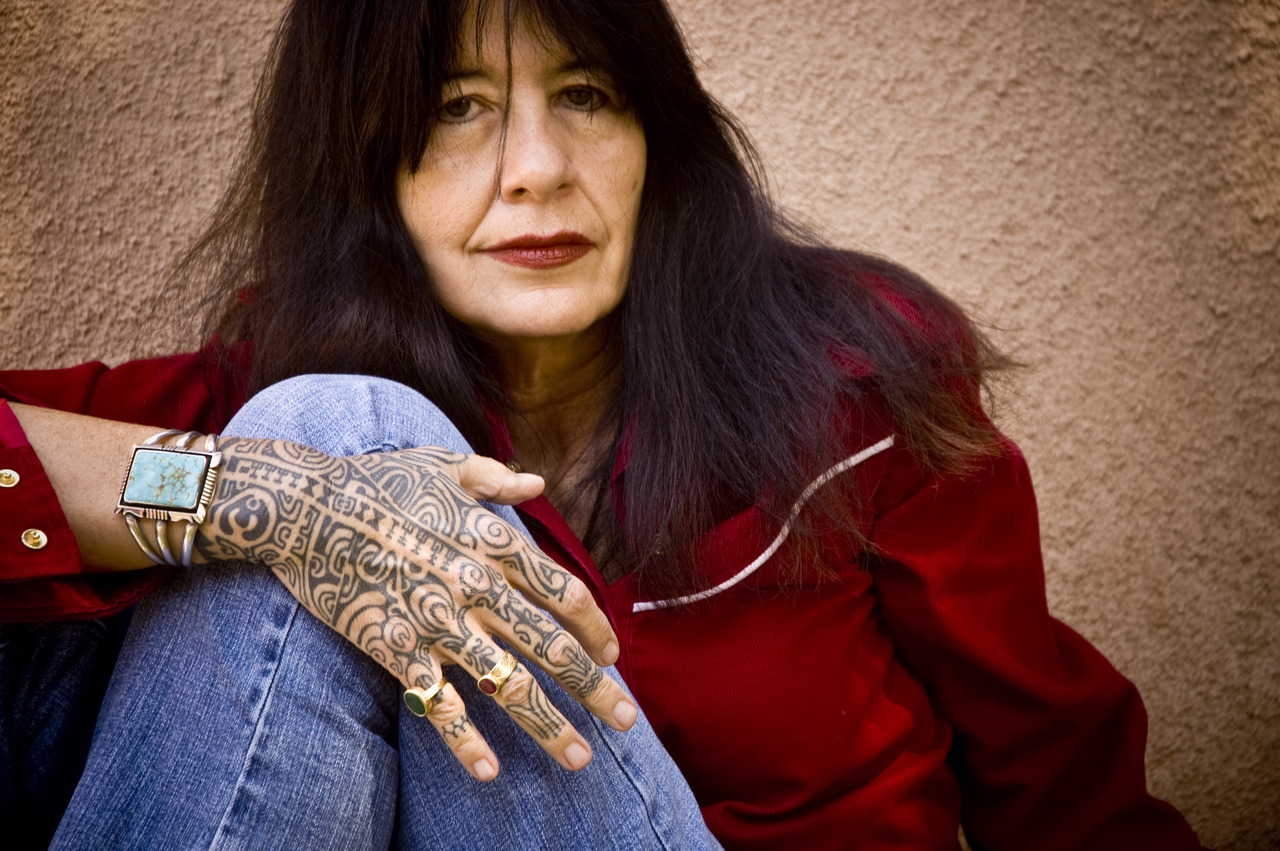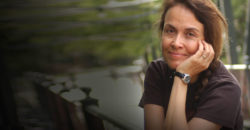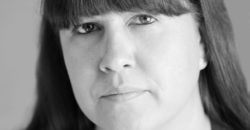poets sit at a kitchen table

Joy Harjo was born in Tulsa, Oklahoma on May 9, 1951, and is a member of the Mvskoke/Creek Nation. Her books of poetry include Conflict Resolution for Holy Beings (W. W. Norton, 2015); How We Became Human: New and Selected Poems (W. W. Norton, 2002); A Map to the Next World: Poems (W. W. Norton, 2000); The Woman Who Fell From the Sky (W. W. Norton, 1994), which received the Oklahoma Book Arts Award; and In Mad Love and War (Wesleyan University Press, 1990), which received an American Book Award and the Delmore Schwartz Memorial Award, among others. She has also written a memoir, Crazy Brave (W. W. Norton, 2012), which describes her journey to becoming a poet, and which won the 2013 PEN Center USA literary prize for creative nonfiction.
Also a performer, Harjo has appeared on HBO’s Def Poetry Jam in venues across the U.S. and internationally. She plays saxophone with her band Poetic Justice, and has released four award-winning CD’s of original music. In 2009, she won a Native American Music Award (NAMMY) for Best Female Artist of the Year.
Harjo’s other honors include the PEN Open Book Award, the American Indian Distinguished Achievement in the Arts Award, the Josephine Miles Poetry Award, the Mountains and Plains Booksellers Award, the William Carlos Williams Award from the Poetry Society of America, and fellowships from the Arizona Commission on the Arts, the Witter Bynner Foundation, and the National Endowment for the Arts. Most recently, she received the 2015 Wallace Stevens Award for proven mastery in the art of poetry by the Academy of American Poets. About Harjo, Academy of American Poets Chancellor Alicia Ostiker said: “Throughout her extraordinary career as poet, storyteller, musician, memoirist, playwright and activist, Joy Harjo has worked to expand our American language, culture, and soul. A Creek Indian and student of First Nation history, Harjo is rooted simultaneously in the natural world, in earth—especially the landscape of the American southwest— and in the spirit world. Aided by these redemptive forces of nature and spirit, incorporating native traditions of prayer and myth into a powerfully contemporary idiom, her visionary justice-seeking art transforms personal and collective bitterness to beauty, fragmentation to wholeness, and trauma to healing.”
Perhaps the World Ends Here
The world begins at a kitchen table. No matter what, we must eat to live.
The gifts of earth are brought and prepared, set on the table. So it has been since creation, and it will go on.
We chase chickens or dogs away from it. Babies teethe at the corners. They scrape their knees under it.
It is here that children are given instructions on what it means to be human. We make men at it, we make women.
At this table we gossip, recall enemies and the ghosts of lovers.
Our dreams drink coffee with us as they put their arms around our children. They laugh with us at our poor falling-down selves and as we put ourselves back together once again at the table.
This table has been a house in the rain, an umbrella in the sun.
Wars have begun and ended at this table. It is a place to hide in the shadow of terror. A place to celebrate the terrible victory.
We have given birth on this table, and have prepared our parents for burial here.
At this table we sing with joy, with sorrow. We pray of suffering and remorse. We give thanks.
Perhaps the world will end at the kitchen table, while we are laughing and crying, eating of the last sweet bite.









